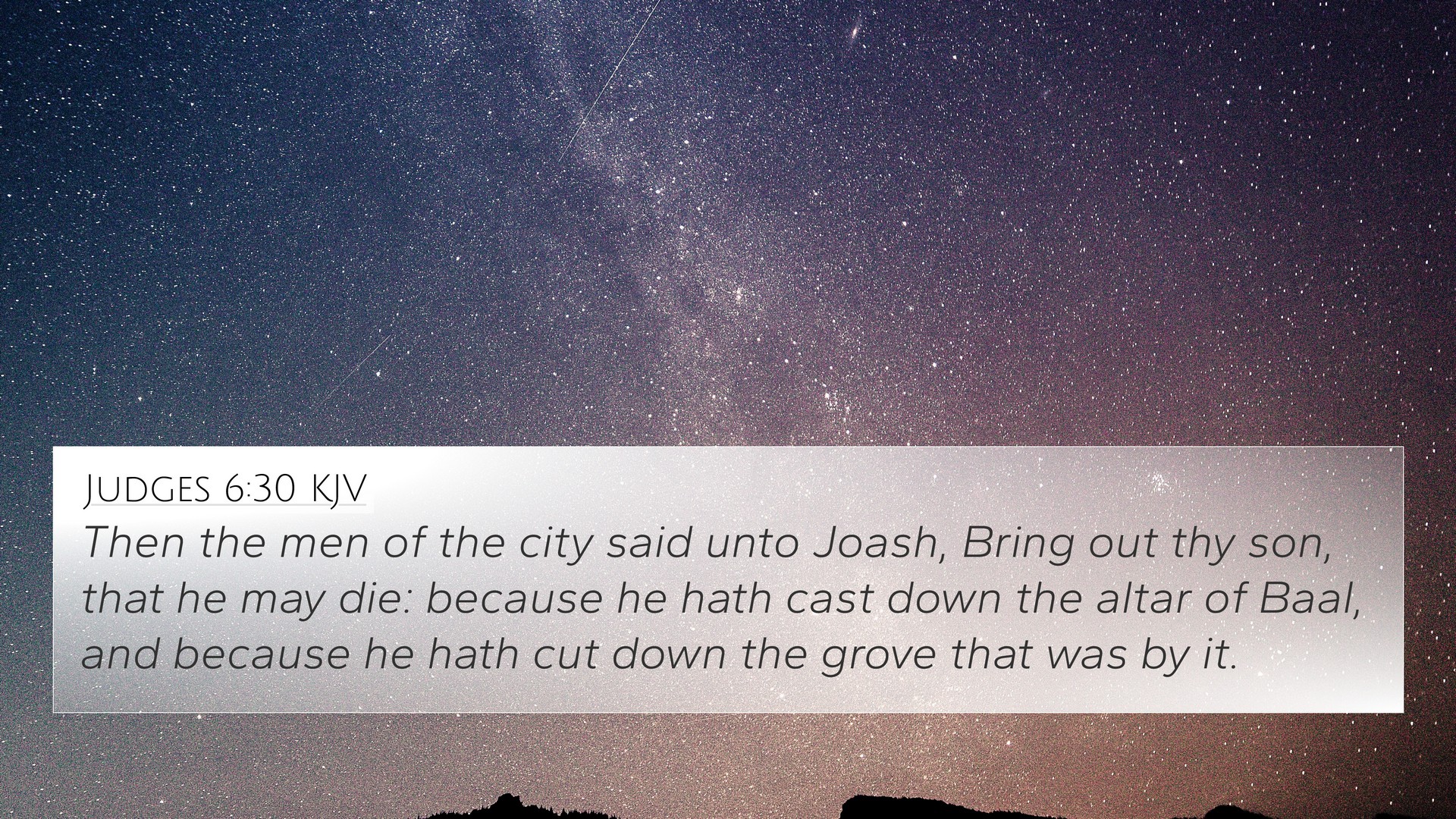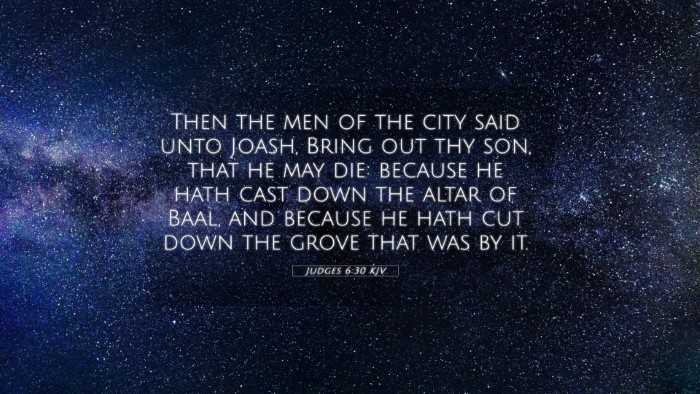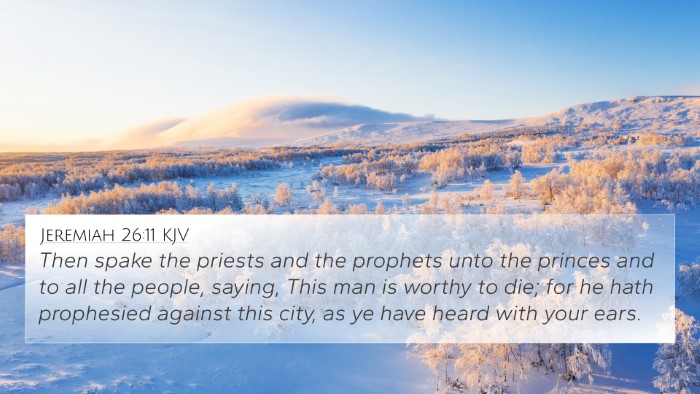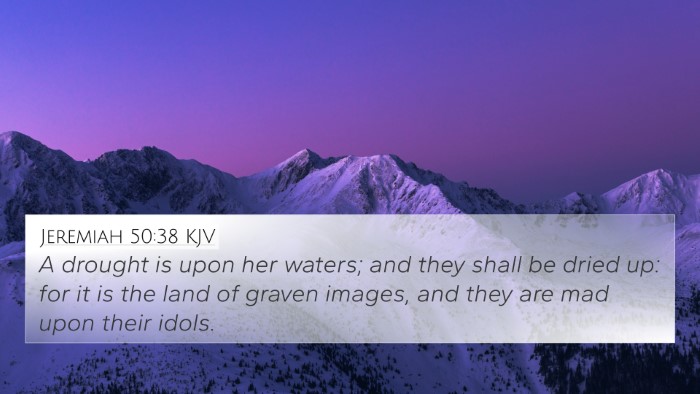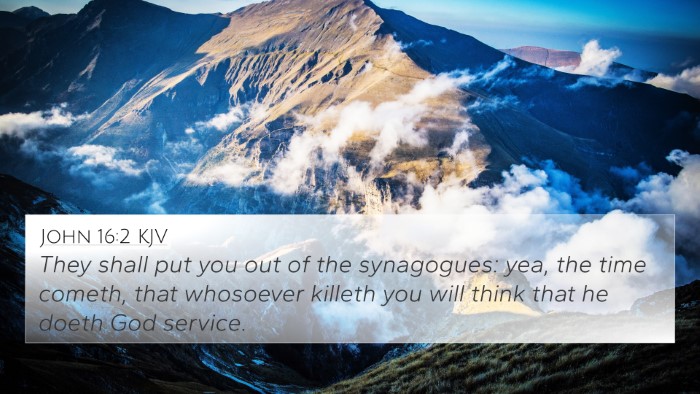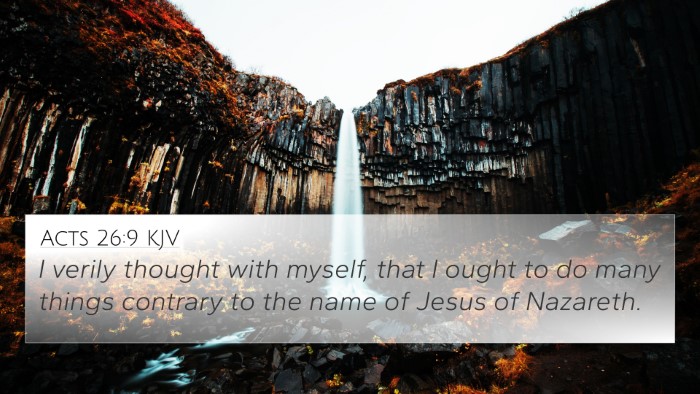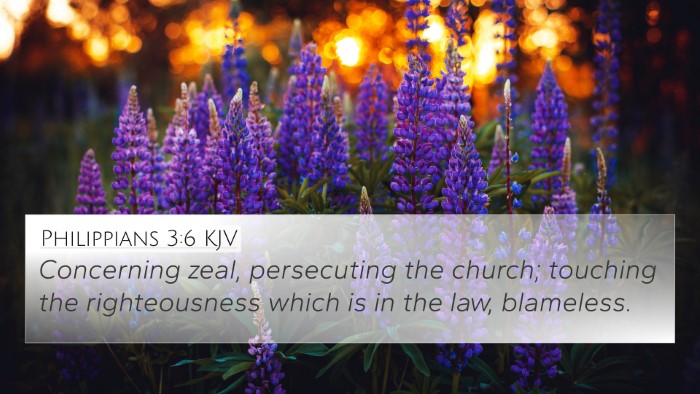Bible Verse Meaning of Judges 6:30
Judges 6:30 states: "Then the men of the city said to Joash, 'Bring out your son, that he may die, because he has torn down the altar of Baal and because he has cut down the Asherah that was beside it.'" This verse occurs at a critical juncture in the story of Gideon, reflecting the tension between obedience to God and societal norms.
Contextual Overview
This verse comes after Gideon, chosen by God to deliver Israel from the oppression of the Midianites, has obeyed God's command to destroy the altar of Baal and the Asherah pole. The altar was a significant part of the local idolatrous worship, and its destruction was a direct challenge to the divine authorities recognized by the people.
Thematic Significance
The events in this passage illustrate:
- The Conflict of Faith: Gideon's act of faith against established norms showcases the struggle between fidelity to God's commands and adherence to societal expectations.
- Divine Deliverance: This passage precedes Gideon's calling and mission to save Israel, highlighting that divine deliverance often begins with a willingness to confront evil.
- Community Response to Righteousness: The immediate backlash from the community illustrates how societal pressures can rise against those who stand for truth.
Insights from Commentators
Commentators like Matthew Henry, Albert Barnes, and Adam Clarke engage with this verse in a myriad of ways:
- Matthew Henry: He emphasizes the significance of Gideon's courage in such a hostile environment and how this initial act of destruction sets the stage for God's subsequent deliverance.
- Albert Barnes: Barnes discusses the societal implications of Gideon’s actions and how they provoke a strong response from the idol-worshipping community, revealing the inherent conflict between belief and practice.
- Adam Clarke: Clarke reflects on the symbolism of the altars, noting how their destruction highlights the need for spiritual renewal and prioritizing one's devotion to God over cultural idolatry.
Cross-References to Judges 6:30
The verse connects significantly to various other Biblical passages, enhancing our understanding through cross-referencing:
- Exodus 20:3-5: The commandments regarding the worship of other gods provide a direct background to Gideon's actions.
- 1 Kings 18:21: Elijah’s confrontation with Baal prophets mirrors Gideon’s rebellion against Baal worship.
- Jeremiah 2:13: Discussing forsaking God for false idols aligns with the idolatry Gideon confronted.
- Matthew 10:34-36: Jesus speaks of the division that follows true discipleship, echoing the conflict Gideon faced.
- Acts 17:16-30: Paul's preaching in Athens against idolatry parallels Gideon’s disruption of Baal worship.
- 2 Corinthians 6:14: The call to separation from idolatrous practices resonates with Gideon's mission.
- Romans 12:2: The transformation of believers and resistance against worldly patterns reflects Gideon's courage.
Practical Applications
When studying Judges 6:30, believers can draw significant lessons:
- Courage in Faith: Like Gideon, believers are called to act boldly in faith, even in the face of societal disapproval.
- Prioritize God over Society: The example encourages prioritizing divine commands over human traditions and norms.
- Understanding Community Dynamics: Recognizing the potential backlash against faith-based actions can prepare believers for challenges.
Conclusion
Judges 6:30 serves as a profound lesson about the necessity of faith in action. Through cross-referencing with related scriptures, believers can gain deeper insights into the dynamics of faith, culture, and divine obedience. This verse, while historical, resonates profoundly in the context of contemporary faith journeys, challenging individuals to consider how they confront idolatry in their lives today.
Further Study and Tools
For those seeking to explore these themes further, consider utilizing:
- Bible Concordance: Tools that provide indexed references for quick access to related verses.
- Bible Cross-Reference Guide: A systematic approach to exploring Biblical connections across various texts.
- Cross-Reference Bible Study: Methods for examining themes and theological concepts across scripture.
- Bible Reference Resources: Comprehensive materials available for deeper investigations into scripture connections.
